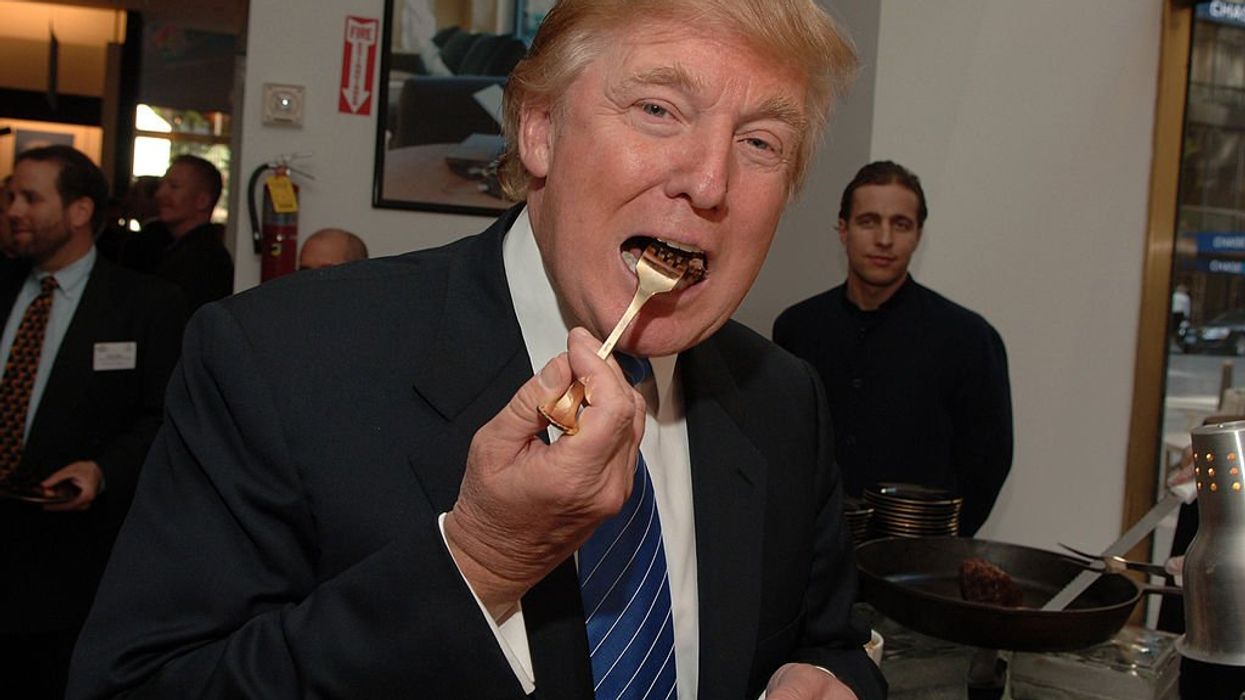
© 2024 Blaze Media LLC. All rights reserved.
Can You Wake Up for One Second?': JPMorgan CEO Tears Into 'Newspaper People'
February 29, 2012
"Newspaper people, can you wake up for one second?"
While giving a J.P. Morgan "analyst day” presentation on Tuesday, CEO Jamie Dimon took the opportunity to assail members of the media, specifically those in the newspaper industry. Some critics believe his snarky remarks were prompted by what he thinks is a deliberate attempt by members of the media to portray banks and bankers as heartless plutocrats.
And maybe he's not too far off.
Take, for instance, the media's ongoing obsession with the compensation-to-revenue ratio at banks. Because this talking point has been picked up by the Occupy crowd and supported by high-ranking politicians, one could argue that journalists have been successful in (re)popularizing the notion that bankers are greedy, overpaid, and, well, immoral.
 "Maybe our next article could be about the dangers of feeding a banker after midnight."
"Maybe our next article could be about the dangers of feeding a banker after midnight."
Back in January, Dimon, who also happens to run the largest and most profitable U.S. bank, went after members of the press for focusing on this ratio, calling it “wrongheaded.”
“Newspaper people, can you wake up for one second? You all are obsessed with this ratio…it’s a stupid ratio, by the way,” Dimon said Tuesday, “We are going to pay competitively. We need top talent, you cannot run this business on second-rate talent.”
He then turned to some stats he had prepared: “Newspapers -- I went and got this one day just for fun -- 42 percent payout ratio, which I just think is just damned outrageous.”
Well, that’s odd. The average compensation ratio for a newspaper executive is 42 percent?
“To Dimon's credit — JPM does have one of the lowest compensation ratios out of all the banks at around 35%, trailing behind Goldman Sachs and Morgan Stanley, where the ratio ranged between 52% to 42%,” writes Business Insider’s Lisa Du, “so the topic is something he might be able to brag about... to other banks.”
But perhaps he’s not so much bragging as he’s pointing out what he feels is a glaring hypocrisy. As stated above, the compensation ratio for JPMorgan executives is actually lower than the average compensation ratio for a newspaper exec. But you probably won't read that in The New York Times or The Washington Post.
And Dimon didn’t stop there with his criticism.
“Worse than that, you don’t even make any money!” Dimon said, directing his comments to those in the media covering the company’s investor day and drawing laughter from his audience, according to Bloomberg. “We pay 35 percent. We make a lot of money.”
Indeed, JPMorgan posted $19 billion in profit last year -- far more than any newspaper. Add to that the fact that several major newspapers have seen their stock value decline in recent years and it would seem that Dimon's assessment is accurate.
"In 2007, the stock of the New York Times Company was trading for about $25 a share," writes Henry Blodget of Business Insider. "Today, it's trading for $6.56."
But Dimon's comments were probably motivated by more than just a desire to compare salaries.
“Although it seems like the salary comment was made in jest, Dimon's other actions continue to suggest he's pretty fed up,” Du writes. In fact, as David Benoit at DealJournal points out, Dimon spent most of his speech asking the reporters if they were "paying attention, awake and listening clearly."
Understandably, the CEO’s comments have ruffled some feathers.
“Newspapers do make money and they are still quite profitable, many operating with double-digit margins,” said Randy Bennett, a spokesman at the Newspaper Association of America.
Contrary to Bennet's assertion, the data tells a different story.
"Call it creative if you want," writes The Atlantic's Derek Thompson, "but this is what economic destruction looks like. Print newspaper ads have fallen by two-thirds from $60 billion in the late-1990s to $20 billion in 2011."
Via The Atlantic:
 "The decline is stunning," Thompson adds.
"The decline is stunning," Thompson adds.
Given these recent jabs, and considering the fact that he has dissociated himself from President Obama’s re-election bid, it’s probably just a matter of time before Dimon comes under the full scrutiny of major media outlets (especially the newspapers).
 “And make sure you put ‘Dimon, we hate your stupid monster face’ in there…”
“And make sure you put ‘Dimon, we hate your stupid monster face’ in there…”
Want to leave a tip?
We answer to you. Help keep our content free of advertisers and big tech censorship by leaving a tip today.
Want to join the conversation?
Already a subscriber?
more stories
Sign up for the Blaze newsletter
By signing up, you agree to our Privacy Policy and Terms of Use, and agree to receive content that may sometimes include advertisements. You may opt out at any time.
© 2024 Blaze Media LLC. All rights reserved.
Get the stories that matter most delivered directly to your inbox.
By signing up, you agree to our Privacy Policy and Terms of Use, and agree to receive content that may sometimes include advertisements. You may opt out at any time.


